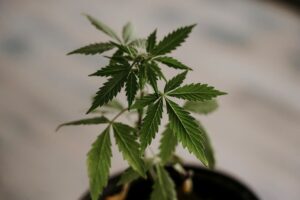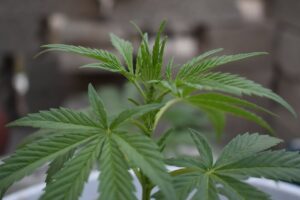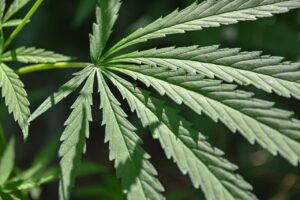The environmental impact of traditional plastics has become a critical issue in the 21st century. With plastic pollution threatening ecosystems and human health, the search for sustainable alternatives has intensified. One promising candidate is hemp-based plastics. Derived from the hemp plant, this bioplastic offers a greener solution that could potentially revolutionize the materials industry. This comprehensive article explores the history, benefits, challenges, and future prospects of hemp-based plastics, shedding light on why they are considered a viable alternative to conventional plastics.
Table of Contents
ToggleHistorical Background
Early Use of Hemp
Hemp (Cannabis sativa) has been used by humans for thousands of years. Archaeological evidence suggests that hemp fibers were used in ancient China as early as 10,000 years ago. Hemp has been utilized for a variety of purposes, including textiles, rope, paper, and even early forms of plastic. In the early 20th century, Henry Ford experimented with hemp-based bioplastics for car manufacturing, showcasing the potential of this versatile plant.
Decline and Resurgence
Despite its historical significance, hemp fell out of favor in the mid-20th century due to legal restrictions and the rise of synthetic plastics. The Marihuana Tax Act of 1937 and subsequent classification of hemp alongside marijuana led to a decline in hemp cultivation. However, in recent years, the legal landscape has shifted, and there has been a resurgence of interest in hemp, driven by its environmental benefits and versatility.
The Environmental Crisis of Traditional Plastics
Ubiquity and Longevity
Traditional plastics, derived from petrochemicals, are ubiquitous in modern life. Their durability and versatility have made them indispensable, but these same properties contribute to environmental problems. Conventional plastics can take hundreds to thousands of years to decompose, leading to persistent pollution.
Impact on Ecosystems
Plastic pollution affects terrestrial and marine ecosystems. Microplastics, which result from the breakdown of larger plastic items, are found in soil, water, and air. Marine animals ingest plastic debris, leading to injury, death, and the disruption of food chains. Additionally, plastics can leach harmful chemicals, impacting wildlife and human health.
Greenhouse Gas Emissions
The production and disposal of traditional plastics contribute significantly to greenhouse gas emissions. The extraction of fossil fuels, manufacturing processes, and incineration of plastic waste release large amounts of carbon dioxide and other greenhouse gases, exacerbating climate change.
Hemp-Based Plastics: An Overview
What are Hemp-Based Plastics?
Hemp-based plastics are bioplastics derived from the cellulose fibers of the hemp plant. They can be used to create a variety of plastic products, from packaging materials to automotive parts. There are several types of hemp-based plastics, including:
- Hemp Cellulose Plastics: Made from the cellulose extracted from hemp fibers, these plastics can be molded into various shapes and used for packaging, films, and more.
- Hemp Composites: These are made by combining hemp fibers with other biopolymers or traditional plastics, resulting in materials with enhanced strength and durability.
- Hemp Bio-Composites: A blend of hemp fibers and bio-based resins, these materials are fully biodegradable and used in applications where traditional plastics are used.
Advantages of Hemp-Based Plastics
Hemp-based plastics offer several environmental and practical benefits:
- Biodegradability: Unlike traditional plastics, hemp-based plastics can decompose naturally, reducing long-term environmental pollution.
- Renewable Resource: Hemp is a fast-growing crop that requires less water and pesticides compared to other plants like cotton, making it a sustainable raw material.
- Carbon Sequestration: Hemp plants absorb large amounts of CO2 during their growth, helping to mitigate climate change.
- Versatility and Strength: Hemp fibers are strong and durable, making them suitable for a wide range of applications, from packaging to construction materials.
Production Process of Hemp-Based Plastics
Cultivation of Hemp
The process begins with the cultivation of hemp plants. Hemp grows rapidly and can be harvested in as little as 90-120 days. It requires minimal pesticides and herbicides, and its deep roots help prevent soil erosion and improve soil health.
Extraction of Cellulose
The primary component used in hemp-based plastics is cellulose. Cellulose is extracted from the stalks of hemp plants through a process called retting, where the stalks are soaked in water to separate the fibers. The fibers are then dried and processed to extract pure cellulose.
Polymerization
The extracted cellulose is then subjected to a process called polymerization, where it is chemically treated to form polymers. These polymers can be molded into various shapes and forms, creating different types of hemp-based plastics.
Composite Formation
For hemp composites, hemp fibers are mixed with other materials, such as polylactic acid (PLA) or polypropylene (PP), to create reinforced plastics with enhanced properties. These composites combine the benefits of hemp with the strength and durability of other materials.
Applications of Hemp-Based Plastics
Packaging
Hemp-based plastics are increasingly used in packaging materials, including bags, containers, and films. Their biodegradability makes them an attractive option for reducing plastic waste in landfills and oceans.
Automotive Industry
The automotive industry is exploring the use of hemp-based composites for manufacturing car parts. These composites are lightweight, strong, and can help improve fuel efficiency by reducing the overall weight of vehicles.
Construction
In the construction sector, hemp-based plastics are used for making insulation materials, panels, and other building components. Their durability and insulating properties make them suitable for sustainable building practices.
Consumer Goods
Hemp-based plastics are also used in various consumer goods, such as electronics casings, toys, and household items. Their versatility allows for a wide range of applications, providing consumers with eco-friendly alternatives to traditional plastic products.
Benefits of Hemp-Based Plastics
Environmental Benefits
- Reduced Pollution: Hemp-based plastics decompose naturally, reducing the accumulation of plastic waste in the environment.
- Lower Carbon Footprint: The cultivation of hemp absorbs CO2, and the production process of hemp-based plastics emits fewer greenhouse gases compared to traditional plastics.
- Sustainable Agriculture: Hemp cultivation promotes sustainable farming practices, improving soil health and reducing the need for chemical inputs.
Economic Benefits
- Job Creation: The hemp industry creates jobs in agriculture, processing, and manufacturing, contributing to economic growth.
- Diversification of Agriculture: Farmers can diversify their crops with hemp, reducing dependency on single crops and enhancing resilience to market fluctuations.
- Market Potential: The growing demand for sustainable products opens new markets and opportunities for innovation in the bioplastics industry.
Health Benefits
- Non-Toxic: Hemp-based plastics do not leach harmful chemicals, making them safer for food packaging and other consumer applications.
- Allergen-Free: Unlike some conventional plastics, hemp-based plastics are hypoallergenic, reducing the risk of allergic reactions.
Challenges and Limitations
Cost
The production of hemp-based plastics is currently more expensive than traditional plastics due to the nascent state of the industry and limited economies of scale. However, as the industry grows and technology advances, costs are expected to decrease.
Infrastructure
The existing infrastructure for plastic production and recycling is geared towards traditional plastics. Adapting this infrastructure to accommodate hemp-based plastics will require significant investment and time.
Legal and Regulatory Barriers
Despite the growing acceptance of hemp, regulatory hurdles remain in some regions. Clear and supportive policies are needed to facilitate the growth of the hemp-based plastics industry.
Market Acceptance
Consumer awareness and acceptance of hemp-based plastics are still developing. Educating the public about the benefits and uses of these materials is crucial for their widespread adoption.
Case Studies
Automakers Embrace Hemp Composites
Several automakers, including BMW and Mercedes-Benz, have begun using hemp-based composites in their vehicles. These companies have found that hemp composites offer a strong, lightweight alternative to traditional materials, improving fuel efficiency and reducing environmental impact.
Sustainable Packaging Solutions
Companies like Sana Packaging are leading the way in creating hemp-based packaging solutions. Their products are used by various industries, including food and beverage, cosmetics, and pharmaceuticals, demonstrating the versatility and effectiveness of hemp-based plastics in reducing packaging waste.
Construction Innovations
In the construction industry, Hempitecture, a company specializing in sustainable building materials, has developed hemp-based insulation products. These materials offer excellent thermal and acoustic properties while being environmentally friendly, highlighting the potential of hemp-based plastics in green building practices.
The Future of Hemp-Based Plastics
Technological Advancements
Continued research and development are essential for improving the properties and production processes of hemp-based plastics. Advances in biotechnology, chemistry, and engineering will enhance the performance and cost-effectiveness of these materials, making them competitive with traditional plastics.
Policy and Regulation
Supportive policies and regulations are crucial for the growth of the hemp-based plastics industry. Governments can incentivize the adoption of sustainable materials through subsidies, tax breaks, and investment in research and infrastructure.
Market Trends
The increasing demand for sustainable products and the growing awareness of environmental issues are driving the market for hemp-based plastics. As consumers and businesses prioritize sustainability, the market for bioplastics is expected to expand significantly.
Collaborative Efforts
Collaboration between industry stakeholders, researchers, and policymakers is vital for the successful adoption of hemp-based plastics. Joint efforts can drive innovation, overcome challenges, and accelerate the transition to a more sustainable materials economy.
Conclusion
The rise of hemp-based plastics represents a promising step towards a greener and more sustainable future. While challenges remain, the environmental, economic, and health benefits of these materials make them a viable alternative to traditional plastics. With continued innovation, supportive policies, and increased consumer awareness, hemp-based plastics have the potential to significantly reduce plastic pollution and contribute to a more sustainable world. The journey towards widespread adoption of hemp-based plastics is just beginning, and the coming years will be crucial in determining their impact on our planet.
Do You Need a Cannabis Dispensary You Can Trust?
Get Ready to Join the Holistic Health Revolution Today! For over a decade, A Therapeutic Alternative has been at the forefront of advocating for medical cannabis patient’s rights. Our passion for providing high-quality products and services has helped us inspire health on a holistic level for our members, employees, and community. Located in the heart of the medical district in Midtown Sacramento, our facilities prioritize education and empower our staff, industry, and members through knowledge. We don’t just talk the talk, we walk the walk, modeling professionalism, compassion, and integrity in the industry. With an ADA lift and ample parking options, including a lot directly behind the building and free street parking, visiting us has never been easier. So, if you’re looking for top-notch Indica Vape Cartridges and a community dedicated to health and happiness, look no further than A Therapeutic Alternative. Join the movement today and discover the transformative power of holistic health.




